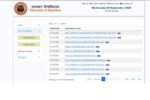IRS $1400 Refund September 2025: The IRS $1400 refund in September 2025 has captured attention across the United States, as millions of Americans are waiting for updates on their stimulus checks. Rising inflation, healthcare costs, and everyday living expenses have left many households searching for financial support. The $1400 refund is aimed at providing direct relief and helping people manage bills, rent, food, and other essential needs.
For many, this refund is not just a simple payment but a lifeline during tough times. It also plays a role in boosting economic activity by increasing consumer spending. Understanding eligibility, payment dates, and how to track your refund status is critical for anyone expecting their check in September 2025.
Why the $1400 Refund in September 2025 Matters
The $1400 IRS refund is significant because it arrives during a period of financial uncertainty. Families are facing higher grocery prices, increasing utility bills, and growing housing expenses. While wages remain largely unchanged, these stimulus checks are expected to provide timely assistance.
Economists point out that when households receive direct cash payments, they tend to spend it immediately on necessities. This helps not only individuals but also small businesses and local economies. Therefore, the $1400 refund is designed as both personal financial relief and an economic booster

read also –$800 Stimulus Checks 2025, Stimulus for Everyone, Eligibility & Payment Dates
Who Will Be Eligible for the IRS $1400 Refund
Eligibility criteria for the $1400 refund are based on income levels, tax filing status, and dependent claims. Most low-income and middle-income families are expected to qualify. Seniors, Social Security recipients, and people with disabilities may also receive payments automatically.
Below is a detailed table outlining the possible eligibility categories and payment details for September 2025.
IRS $1400 Refund Eligibility and Payment Table
| Category | Income Limit (Approx.) | Refund Amount | Notes |
|---|---|---|---|
| Single Filers | Up to $75,000 | $1,400 | Reduced amount for income above $75,000 |
| Married Filing Jointly | Up to $150,000 | $2,800 | Phase-out begins above $150,000 |
| Head of Household | Up to $112,500 | $1,400 | Reduced amount for higher income |
| Seniors (Social Security Rec.) | No strict income cap | $1,400 | May receive automatically even if no tax return filed |
| Individuals with Disabilities | Varies | $1,400 | Linked with benefit programs |
| Dependents (Children/Adults) | N/A | $1,400 each | Additional payment for eligible dependents |
How to Track Your $1400 Stimulus Check Status
Tracking your refund is essential so that you know exactly when the payment is arriving. The IRS provides multiple options to check your status:
- IRS “Get My Payment” Tool – Available on the official IRS website, this tool allows you to see if your payment has been processed, the method of delivery, and the expected arrival date.
- Direct Deposit Tracking – If your bank details are linked with the IRS, funds will be deposited directly. Most banks update account balances within 24–48 hours after IRS sends the payment.
- Paper Check or Debit Card – For those receiving physical checks or prepaid debit cards, tracking numbers may be provided through USPS Informed Delivery.
- Social Security Beneficiaries – Payments for seniors and disability recipients may be automatically deposited into existing benefit accounts.
Payment Schedule for September 2025
The IRS has announced that payments will be distributed in batches throughout September 2025. Direct deposits will go out first, followed by paper checks and debit cards. People who filed taxes early and have updated bank details are expected to receive funds faster.
Economic Impact of the $1400 Refund
The $1400 refund is more than just immediate financial relief. When citizens spend this money on rent, groceries, healthcare, and utilities, it directly supports small businesses and strengthens the local economy. Experts believe that these payments will help stabilize economic activity, reduce financial stress, and encourage consumer confidence.
However, some critics argue that repeated stimulus checks may add pressure to government budgets and increase debt. Still, the short-term relief and economic stimulation make these payments essential for many households.
Common Challenges People May Face
While the refund is a welcome step, there are challenges that people may encounter. Some may face delays due to outdated bank information or mailing addresses. Others may not know how to track their status properly, leading to confusion. In rare cases, technical errors or mismatched records can also delay payments.
The IRS has advised people to keep their tax records updated and regularly use the official tracking tools to avoid unnecessary delays.
The Future of Stimulus Refunds
Looking forward, it is uncertain whether additional stimulus payments will be issued beyond September 2025. Policymakers continue to debate whether direct cash refunds are a sustainable solution. Some experts suggest future relief may shift toward tax credits, healthcare subsidies, or targeted assistance programs rather than universal checks.
IRS $1400 Refund September 2025 (FAQ)
Who qualifies for the IRS $1400 refund in September 2025?
Eligibility depends on income, filing status, and dependent claims. Most low- and middle-income households, seniors, and Social Security beneficiaries qualify.
How much will I receive from the IRS refund?
Most individuals will receive $1,400. Married couples can receive $2,800, plus additional funds for eligible dependents.
How can I track my $1400 stimulus check?
You can use the IRS “Get My Payment” tool, bank updates, or USPS tracking for paper checks.
IRS $1400 Refund September 2025 Conclusion
The IRS $1400 refund in September 2025 is an important financial lifeline for millions of Americans. It provides much-needed relief during rising costs and uncertain economic times. By understanding eligibility, payment schedules, and tracking methods, households can make the most of this opportunity. While long-term reforms may still be needed, the September 2025 refund ensures that families, seniors, and individuals get immediate support when it matters most.



















